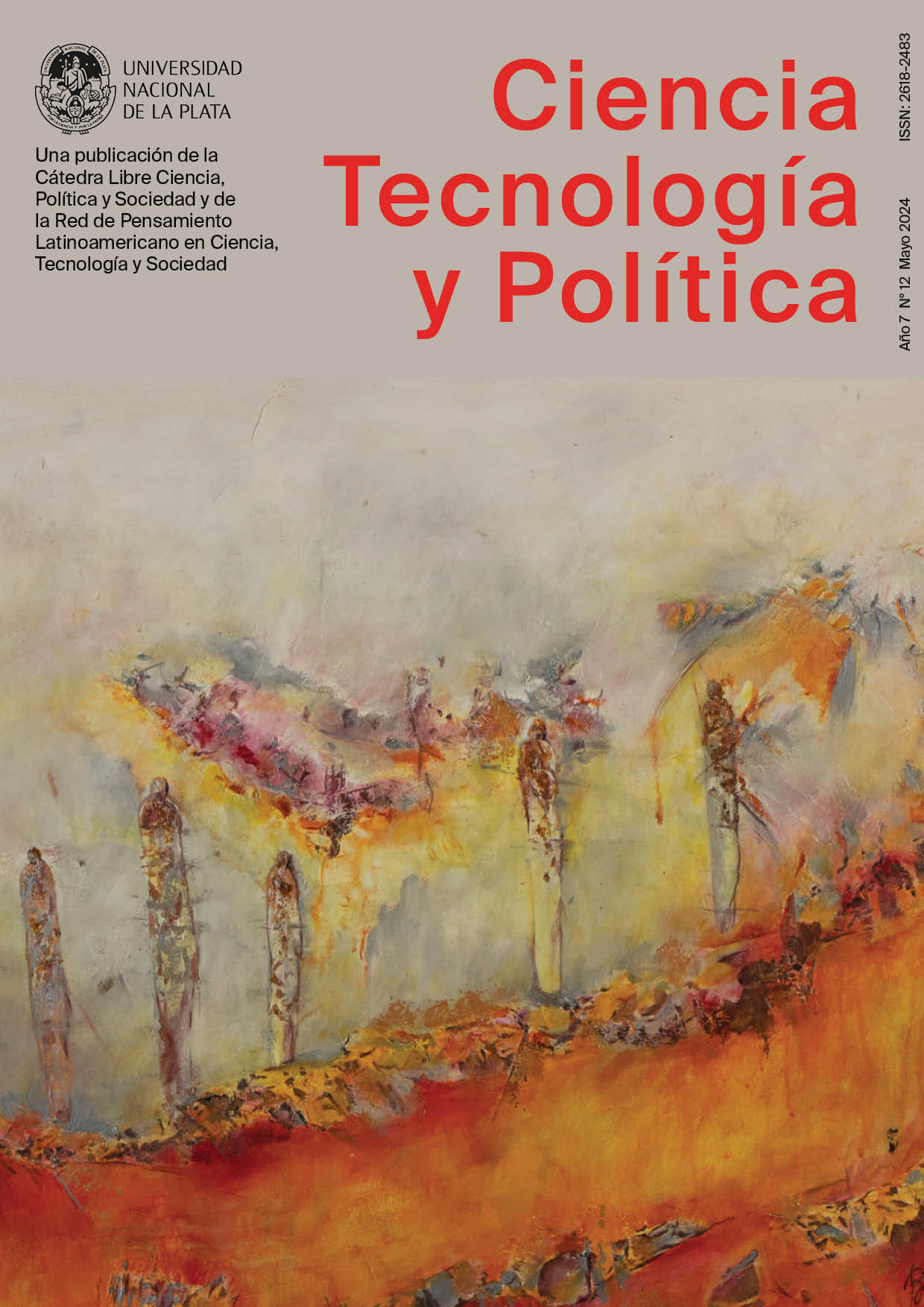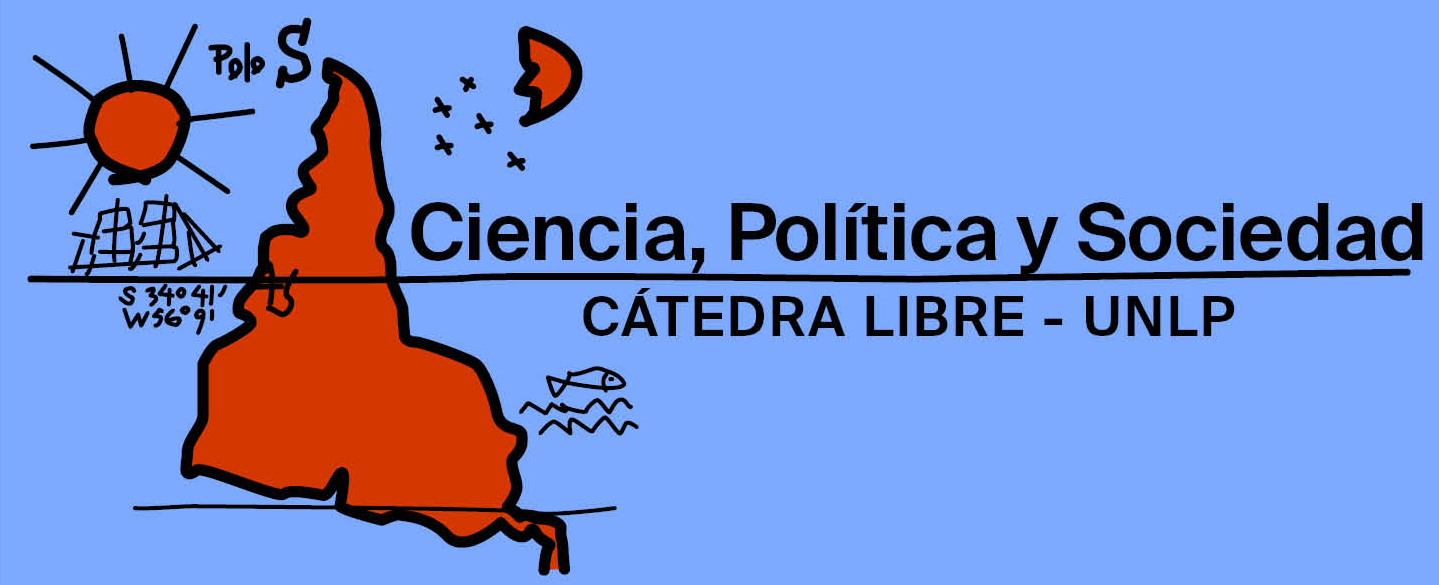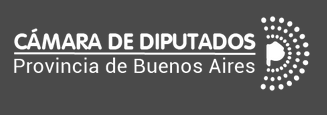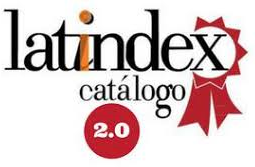El papel de la innovación abierta y colaborativa en los nuevos marcos de innovación
DOI:
https://doi.org/10.24215/26183188e112Palabras clave:
ciencia abierta, innovación abierta, prácticas colaborativas, apertura del conocimientoResumen
Después de décadas de hegemonía, el marco de la innovación orientado a la competitividad y la comercialización del conocimiento ha comenzado a ser puesto en cuestión, señalando sus dificultades para enfrentar los desafíos globales, como la crisis climática y la creciente desigualdad social. La revisión de estas ideas coincide con una nueva gran ola de cambio tecnológico encabezada por las tecnologías de automatización e inteligencia artificial. Partiendo de una revisión de la literatura sobre ciencia e innovación abierta y colaborativa, en este trabajo se reflexiona acerca del papel que deberían tener los actores emergentes en un nuevo marco de innovación y de cómo co-crear con ellos una pluralidad de modelos en torno a formas de desarrollo más democrático, justo y sustentable.
Referencias
Ardvisson, A. (2019). Changemakers: The industrious future of the digital economy. Polity.
Benkler, Y. (2017). Peer production, the commons, and the future of the firm. Strategic Organization, 15(2), 264-274. https://doi.org/10.1177/1476127016652606
Castells, M. (2012). Networks of outrage and hope: Social movements in the internet age. Polity.
Cricelli, L., Grimaldi, M. y Vermicelli, S. (2022). Crowdsourcing and open innovation: A systematic literature review, an integrated framework and a research agenda. Review of Managerial Science, 16(5), 1269-1310. https://doi.org/10.1007/s11846-021-00482-9
Dyer-Witheford, N., Kjøsen, A. M. y Steinhoff, J. (2019). Inhuman Power Artificial Intelligence and the Future of Capitalism. Pluto Press.
Edquist, C. y Edqvist, O. (1979). Social carriers of techniques for development. Journal of Peace Research, 16(4), 313-331. https://www.jstor.org/stable/424332
Fressoli, M. y Arza, V. (2018). Los desafíos que enfrentan las prácticas de ciencia abierta. Teknokultura, 15(2), 429-448. https://doi.org/10.5209/TEKN.60616
Lash, S. y Urry, J. (1998). Economías de signos y espacios. Sobre el capitalismo de postorganización. Amorrortu.
Liaudat, S., Terlizzi, M. S. y Zukerfeld, M. (2020). Piratas, virus y periferia: la apropiación impaga de conocimientos en el capitalismo, del PLACTS a la COVID-19, argumentos. Revista de Crítica Social, 22, 40-81.
Mazzucato, M. (2018). Mission-oriented innovation policies: Challenges and opportunities. Industrial Corporate Change, 27(5), 803-815. https://doi.org/10.1093/icc/dty034
Raymond, E. (2001). The Cathedral & the Bazaar. O’Reilly.
Schot, J. y Steinmueller, W. E. (2018). Three frames for innovation policy: R&D, systems of innovation and transformative change. Research Policy, 47(9), 1554-1567. https://doi.org/10.1016/j.respol.2018.08.011
Schumpeter, J. A. (1971). Capitalismo, socialismo y democracia. Aguilar.
Schwab, K. (2017). The fourth industrial revolution. Currency.
Smith, A. y Fressoli, M. (2021). Post-automation. Futures, 132, 102778. https://doi.org/10.1016/j.futures.2021.102778
Transformative Innovation Policy Consortium. (2024). About TIPC. https://tipconsortium.net/about-tipc/
Von Hippel, E. (2016). Free Innovation. The MIT Press.
Wark, M. (2021). El capitalismo ha muerto. El ascenso de la clase vectorialista. Holobionte.
West, J. y Gallagher, S. (2006). Patterns of Open Innovation in Open Source Software. En H. Chesbrough, W. Vanhaverbeke y J. West (Eds.), Open innovation: Researching a new paradigm (pp. 82-106). Oxford University Press. https://doi.org/10.1093/oso/9780199290727.003.0005
Zukerfeld, M. (2021). Explotación, conocimiento y capitalismo: una tipología de la explotación para el capitalismo informacional. Realidad Económica, 51(344), 105-132.
Publicado
Número
Sección
Licencia
Derechos de autor 2024 Mariano Fressoli, Adrian Smith

Esta obra está bajo una licencia internacional Creative Commons Atribución-NoComercial-CompartirIgual 4.0.
Los/as autores/as cuyos textos se publiquen en esta revista ceden de forma no exclusiva sus derechos patrimoniales en favor del editor. Eso significa que los/as autores/as podrán realizar otros acuerdos contractuales independientes y adicionales para la difusión de su texto publicado en esta revista. Como por ejemplo, incluirlo en un repositorio institucional, temático o de otro tipo, publicarlo en un libro, u otros, siempre que indique explícitamente que el trabajo se publicó por primera vez en esta revista.
La responsabilidad de cada trabajo publicado en cuanto a su contenido recae exclusivamente en los/as autores/as del mismo, deslindando a los editores de cualquier responsabilidad legal.
Los textos de la revista se difundirán bajo licencia Creative Commons 4.0 BY-NC-SA. Eso significa que los lectores son libres de:
1) Compartir, copiar y redistribuir el material en cualquier medio o formato.
2) Adaptar, remezclar, transformar y crear a partir del material, bajo las siguientes condiciones:
- a) Atribución — se debe dar crédito a esta obra de manera adecuada, proporcionando un enlace a la licencia, e indicando si se han realizado cambios.
- b) Uso No Comercial — no se puede hacer uso del material publicado con fines comerciales.
- c) Compartir Igual — Si remezcla, transforma o crea a partir del material, debe distribuir su contribución bajo la misma licencia del original.




































